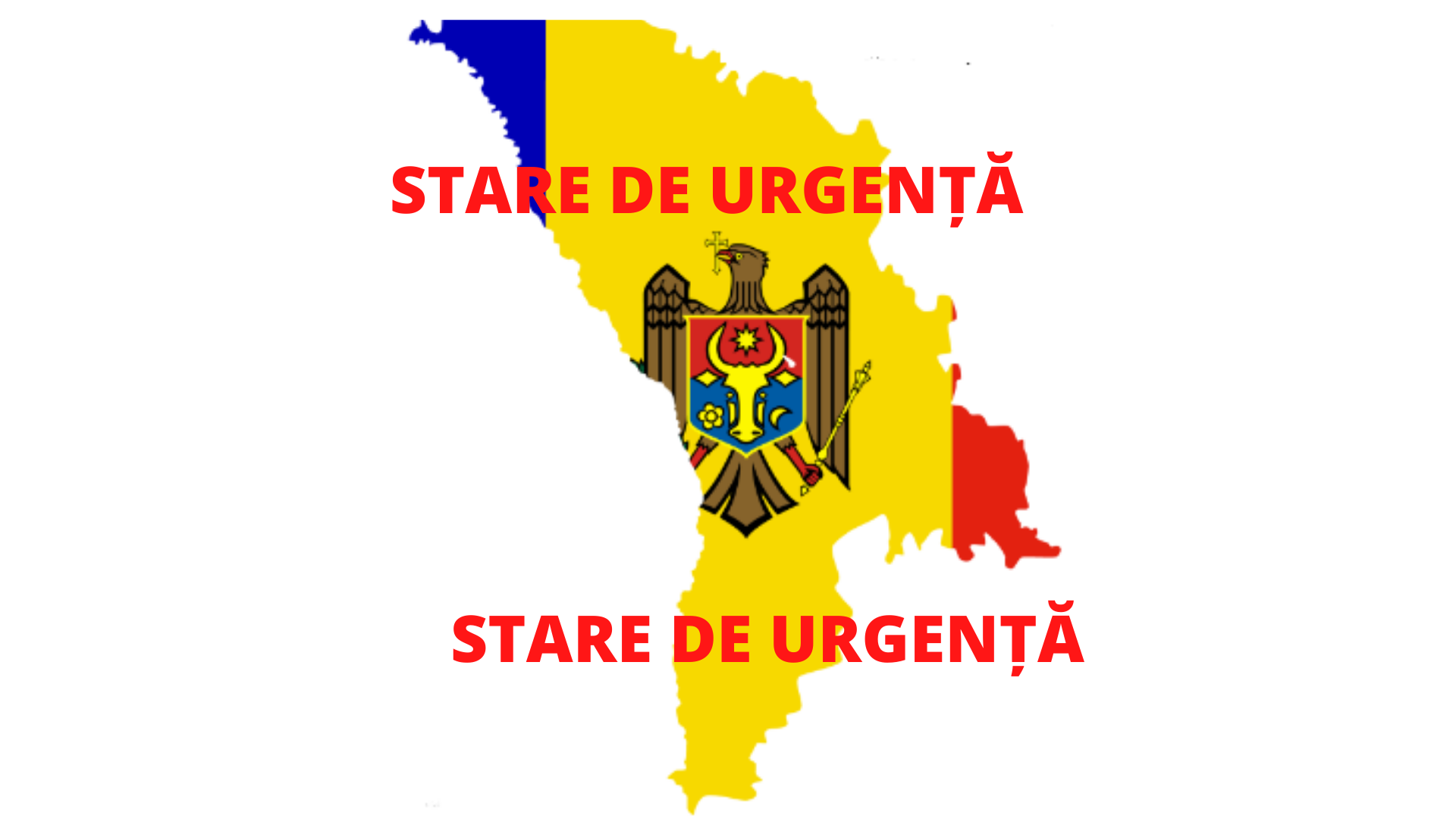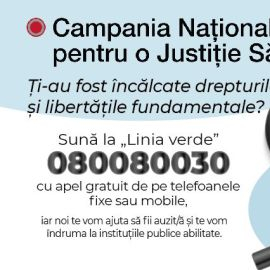back
National Campaign for Healthy Justice. The state of emergency: freedoms and rights restricted

In the Republic of Moldova, a state of emergency has been established for 60 days, until 15 May 2020. Following the example of other countries, the Moldovan authorities have approved a set of measures to mitigate the spread of infection with the new coronavirus (COVID-19).
In the Republic of Moldova, a state of emergency has been declared for 60 days, until 15 May 2020. Following the example of other countries, the Moldovan authorities have approved a set of measures to mitigate the spread of infection with the new coronavirus (COVID-19). The declaration of a state of emergency imposes several obligations on citizens, but also restrictions and limits certain rights. Human rights experts warn of possible abuses during this period and advise civil society to monitor the decisions of the Emergency Commission. Villages and towns quarantined As the number of people infected with COVID-19 increases daily, several towns across the country have been quarantined. One such situation is in the village of Talmaza in Stefan Voda district. Residents here are restricted from leaving the village and have to comply with the self-isolation regime. Mayor Eugen Pruteanu says he and the police go around the village to inform villagers about the rules imposed by the central authorities, which they are all obliged to follow. If people respect the rules, we will quickly get rid of this need." The village of Păulești in the Călărași district is also under quarantine, as doctors have confirmed a case of COVID-19 infection. Mayor Ion Prunici said villagers are banned from leaving the village and foreigners are not allowed to come here. The local councillor says that only in emergencies do the police approve entry and exit from the village, the decision being taken by the District Commission for Exceptional Situations. As of April 2, 2020, eight localities in Moldova were placed under quarantine where the most cases of Covid-19 were registered. The first localities to enter quarantine are the villages of Balceana and Sofia in the district of Hincesti. Subsequently, the mayor of Talmaza village in Stefan Voda issued a quarantine order in this locality. The District Commissions for Exceptional Situations decided to declare a quarantine in the villages of Pohorniceni in the Orhei district and Păulești in the Călărași district. The last localities where quarantine has been established are Soroca municipality, Stefan Voda city and Carahasani village, Stefan Voda district. Restrictions on freedom of assembly, education, movement The Decision on the declaration of a state of emergency was adopted by the Parliament of the Republic of Moldova on 17 March 2020. Under the state of emergency regime, citizens are subject to certain rules, established by the Commission for Exceptional Situations of the Republic of Moldova, which also establishes the quarantine regime in localities with infected persons. Sorina Macrinici, legal adviser at the Legal Resources Centre of Moldova, says that during this period certain fundamental rights and freedoms may be restricted, such as freedom of assembly, freedom of belief, education, movement and expression. Thus, during the state of emergency, people are not allowed to organise mass public gatherings and demonstrations. A special regime for movement within the country and for entering and leaving the country is also in place during this period. At the same time, citizens may be called upon by the authorities to provide certain services of public interest, if necessary. A special working regime is established for central and local public authorities. All educational institutions in the country are currently banned from operating, regardless of their level. Holy places of worship are also banned from operating and cannot hold services with more than three people. During the state of emergency, dismissal of workers is prohibited, except in the cases provided for in the regulations for this period. Derogations from the application of the ECHR Four member countries of the Council of Europe: the Republic of Moldova, Romania, Armenia and Latvia, have activated the article of the European Convention on Human Rights which allows derogations from its application under the state of emergency. Vadim Vieru, a lawyer with the Promo-LEX association, says that in situations of war, crisis and state of emergency, states tend to violate human rights. "In Moldova, derogations have been made from the right to freedom of movement, the right to property and the right of association (mass demonstrations or meetings). These rights can indeed be limited in the context of a state of emergency. However, studying the decisions of the Commission for Exceptional Situations, we note that the state tends to limit other rights, actions which are apparently not justified in a pandemic situation. For example, the possibility of a fair trial in a criminal case". For his part, Dumitru Roman, Head of the Monitoring and Reporting Department of the Office of the Ombudsman, points out that our country has admitted to human rights violations even up to the declaration of a state of emergency and has been condemned by the Strasbourg Court, which increases the risk of further slipping away from its human rights commitments. "This is influenced by the crisis situation, which requires the authorities to take certain measures to restrict fundamental rights in order to reduce the impact of the Coronavirus pandemic. However, if the authorities intervened with balanced measures, proportionate to the legitimate aim pursued, and not discriminating against certain groups, these risks could easily be avoided and the authorities' decisions would have more consistent support from the population. This is why the authorities should see national human rights institutions, such as the Office of the Ombudsman or the Council for the Prevention and Elimination of Discrimination and Equality, as well as representatives of civil society, as key partners in making decisions that do not run counter to fundamental human rights and interests". The infection has spread to all countries of the world According to the Law on the Regime of Emergency, Curfew and War, the Parliament of the Republic of Moldova may extend the duration of the state of emergency or curfew, extend or restrict the scope of the state of emergency, depending on the evolution of the situation. On 11 March 2020, the World Health Organization (WHO) declared a coronavirus pandemic. First recorded late last year in the Wuhan region of China, the infection has spread to countries around the world, spreading rapidly from continent to continent. In March this year, neighbouring countries Romania and Ukraine also declared a state of emergency to combat the COVID-19 pandemic. Thematic vocabulary Coronavirus - zoonotic virus (specific to humans and animals) of the family Coronaviridae, responsible for various respiratory diseases in humans, characterised by a single-stranded RNA structure and a glycoprotein envelope with a shape resembling the solar corona; Pandemic - epidemic spreading over a very large territory, encompassing several countries, continents; Quarantine - preventive isolation of a person or a community that has been in contact with an ill person or that comes from a region where there is an epidemic. Source: Dicționar Explicativ al Limbii Române Lilia Zaharia
